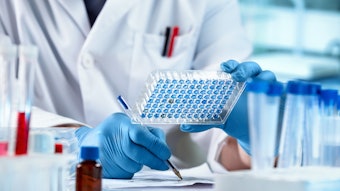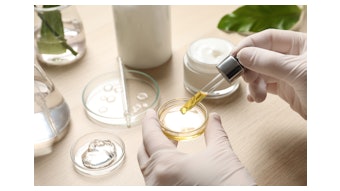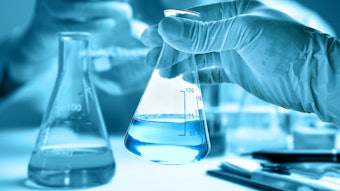Aquaporins (AQPs) are integral membrane proteins that form pores in the membrane of biological cells. At least 13 mammalian AQPs (AQP0–AQP12) have been identified and divided into two groups on the basis of their permeability. AQPs 1, 2, 4, 5 and 8 function primarily as water-selective transporters; AQPs 3, 7, 9 and 10, termed aquaglyceroporins, transport water as well as glycerol and possibly other small solutes.
Keratinocyte Differentiation
LVMH Recherche–Parfums et Cosmétiques and Chesebrough-Ponds are two personal care companies with patent histories in raw materials and cosmetic compositions for regulating skin cell growth.
More than a decade ago, French researchers at LVMH described the use of an ecdysteroid for the preparation of cosmetic or dermatological compositions intended specifically for strengthening the water barrier function of the skin. Ecdysteroids are hormones that regulate keratinocyte differentiation in humans. This differentiation manifests itself at the epidermal level in greater cellular cohesion; in the regulation of keratinocyte transformation into corneocytes, through loss of the nucleus and increase in cellular cornification; and in an increase in the number of layers of corneocytes forming the cornified layer.
In the epidermis, these phenomena collectively contribute to give the skin a smoother and softer appearance, to strengthen the protective function of the skin with respect to the external environment, and to strengthen the water barrier, preventing excessive water loss. In the hair follicle, they regulate or even increase the synthesis by keratinocytes of keratin, the main constituent of the pilar shaft of each individual hair. Also, according to this 1997 patent, these compositions enable the restoration of normal keratinocyte differentiation, and therefore could be intended for the treatment of psoriatric skin.
For the complete article, subscribe to C&T magazine's Digital Edition.










